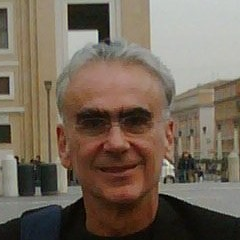“How excellent” – the first words in Handel’s Saul are sung in praise of God, first uttered in its 1739 premiere. But they apply equally to Claus Guth’s interpretation of the work staged at Theater an der Wien. This was an unusual performance – and not only because of the path taken by Guth and his crew. The Covid-19 induced lockdown of Vienna’s theatres meant that this revival was recorded for later broadcast with only a bevy of cameras and a few reviewers in an otherwise empty opera house. Enjoyment was not long in coming, nonetheless, for those fortunate enough to be there.
Oratorios are generally static creatures and directors attempting to adapt them for the stage do so at their own peril. They must not only find ways to make individual scenic and musical tableaux flow into each other. Even more than in traditional opera, they have to pick soloists who are not only strong in voice but in giving life to music and text in dramatic expression. The revival of Guth’s 2018 production meets these challenges and then some.
Gloom is the dominant flavour in this dark story of a king who loses his throne to a usurper, even if an unwitting one. Black partitions on a frequently rotating stage separate episodes, like a chapters in a book. But openings in those walls connect when needed. Characters enter and leave through them, allowing the flow of one vocal and visual scene into the other. And the partitioning permits discrete scenery changes.
The darkness gives way to other shadings only rarely, but to good effect when it does. Pink dominates the dining room scene where David appears at the dinner table of Saul, his children and the head priest bearing the head of Goliath. Yet the cosy colour is deceiving, unable to diminish the sense of the creeping menace already gnawing at this dysfunctional family. Other clues point towards the tragedy to come in the scene that ends with Saul stumbling from the room, grasping at his head in the first manifestation of his agony to come. Gestures are slow and laboured. There is physical and verbal violence. And the maid servant’s minatory presence in the background foreshadows her (actually his) further role as the witch whose conjuration foretells Saul’s downfall. Later recurring scenes documenting Saul’s progression to perdition take place in a dismal, white-tiled space reminiscent of, at best an empty hospital storage room in a Third World country, at worst an abattoir.
Movement is key in a work not written to be staged, and much of the visual drama is dance-like. There are moments of flash action. But Saul moves slowly most of the time, a human metronome marking time of the macabre musical march that will lead to his betrayal by his offspring, then death and finally the succession of his rival, David, to the throne. He stumbles. He falls. But he rises again and again. Until he doesn’t.
If it looks and feels like ballet that’s because it’s meant to. Ramses Sigl’s choreography melds movement to music to near perfection. He overshoots the mark only in keeping the arms of the chorus in near perpetual motion so that, at times, its members looked like they were performing group semaphore.
Florian Boesch was a fascinating Saul, his powerful bass-baritone and clear diction the perfect instrument for the increasingly rageful outbursts and spiteful invocations of Israel’s God-forsaken king inexorably moving towards his downfall. His facial expressions and body language were no less striking, so expressive that they accounted for some of his most powerful moments on stage without him singing a single note.
As David, countertenor Jake Arditti was white to Boesch’s black not only in costuming but in his convincing portrayal of David’s initially Parsifal-like innocence (something he loses long before the curtain falls). The rustic shepherd who makes his entry by dumping Goliath’s head onto the royal dinner table is, by the end, on his way to becoming the mirror image of the man he unwittingly usurped. Arditti combined vocally solid grounding and agility with a sense of drama for a convincing depiction of his transformative journey.
Anna Prohaska (Merab), Giulia Semenzato (Michal) and Rupert Charlesworth (Jonathan) performed solidly as Saul’s children who succumb to David’s physical and spiritual charms. Also good were David Webb in the roles of the High Priest, Abner and Doeg, and Andrew Morstein as Amalekite. And although he sang only briefly, Rafal Tomkiewicz’s Witch of Endor deserves special mention – his conjuring up of the “Infernal Spirits” was bone-chilling.
Kudos, too, to the Freiburger Barockorchester under Christopher Moulds for its finely textured balance between powerful ensemble and delicate solo passages of Handel's score and the Arnold Schoenberg Choir’s nuanced singing, alternately exulting, admonitory or mournful.
George Jahn was invited to attend the recording premiere at the Theater an der Wien on 20th April as a member of the press. The video stream of the production will be broadcast at a later date.




